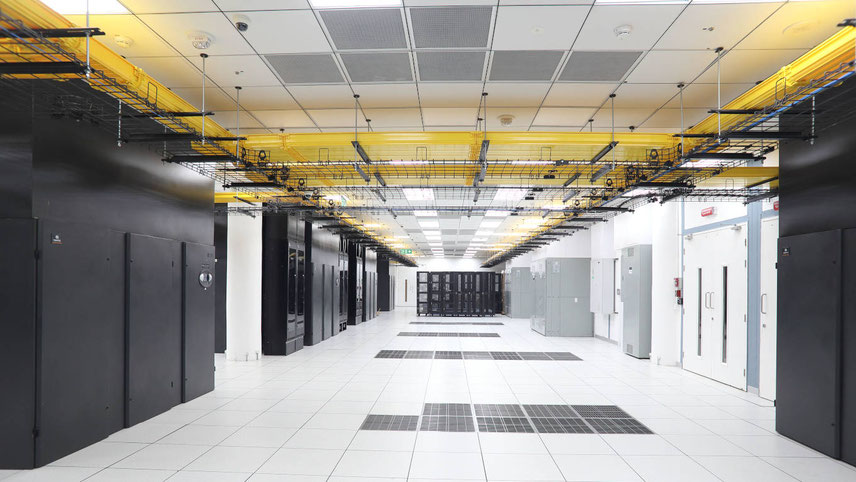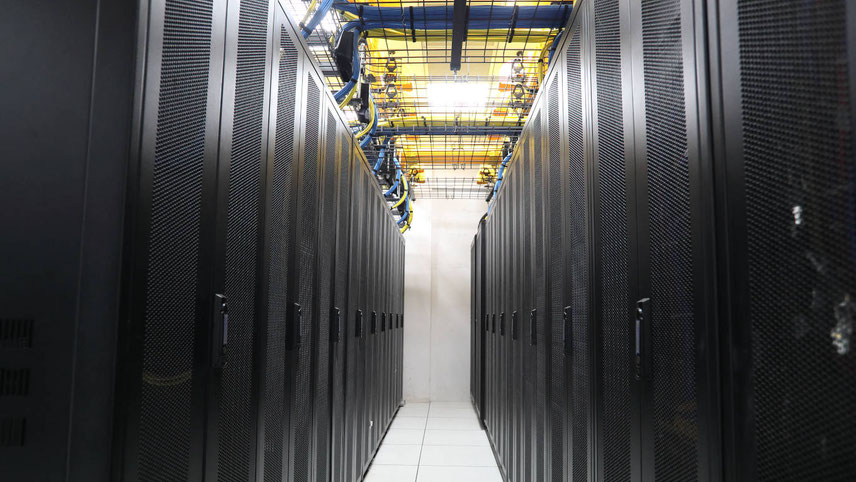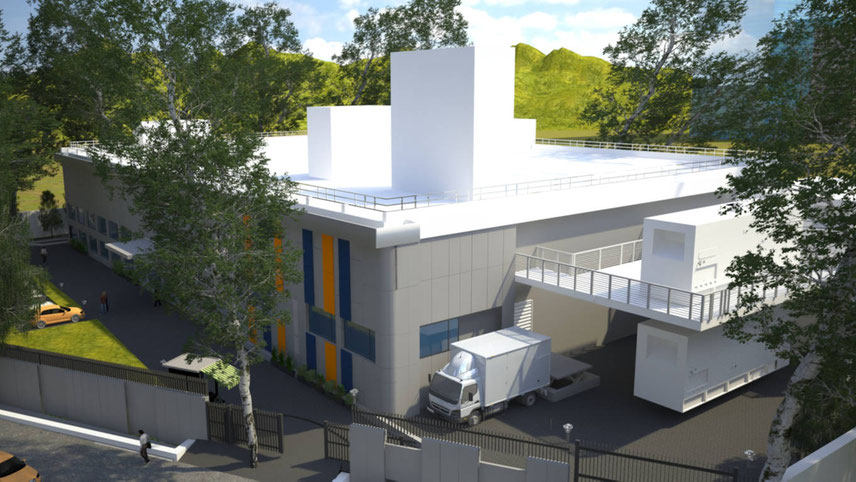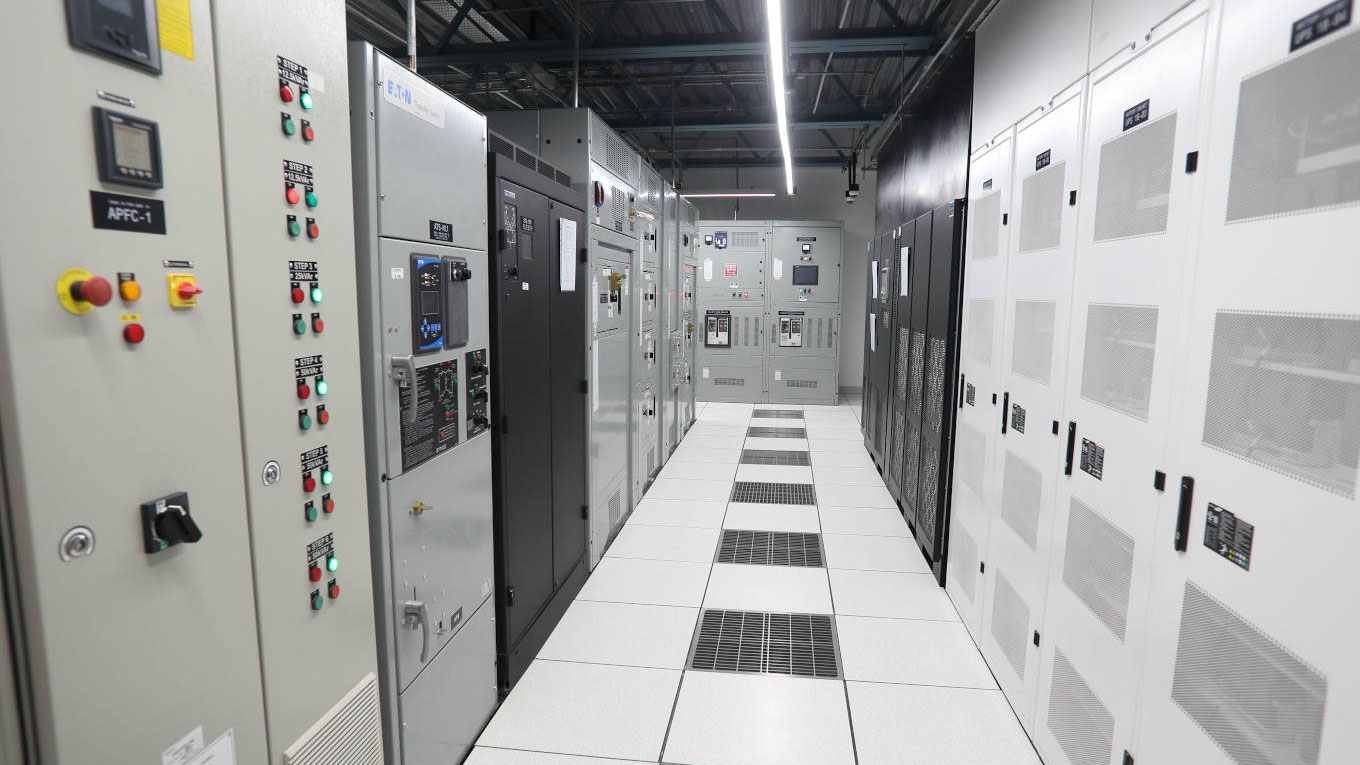-

The company added the National Internet Exchange of India (NIXI) to the GPX Interconnection Ecosystem recently and is the fifth Internet Exchange operational at the GPX Mumbai DC campus. In fact, GPX is the only data centre in India with a total number of five Internet Exchanges. With the addition of NIXI to the rich interconnection ecosystem, GPX’s customers now have the opportunity to connect to NIXI – the oldest and one of the most significant Internet exchanges in the country – for low-latency and cost-effective interconnection solutions to expand their reach. NIXI has played a pioneering role in being an enabler for improved interconnection between ISPs and telecom service providers.
Due to this ecosystem, TeleGeography, a worldwide telecommunications market research and consulting company, recently named GPX Mumbai DC as one of the world’s top 10 hyper connected enterprise hubs. “When it comes to selecting data centres and carriers to support a wide-area network, two major challenges are scale and competing priorities,” explains Tim Stronge, vice-president, research, TeleGeography. “Network designers and managers need to take a lot of factors into consideration, such as office proximity, cost and connectivity.
This can be a time-consuming and costly process without the right tools. Our WAN Geography Benchmark simplifies and automates the process and makes mission-critical data and insights immediately available. This empowers enterprises and enables them to find the right facilities for meeting their business objectives.”
TeleGeography introduced its WAN Geography Benchmark tool to let customers spot the most connected data centre facilities across the world and choose local and global hubs based on more than a million data points. The WAN Cost Benchmark offers detailed analysis of which data centres are the best fit for an enterprise’s preferences and locations. It offers customised recommendations for optimising network architecture for the cloud, with a methodology that ranks data centres based on priorities set by the enterprise user.
Reliability and performance
“The process of selecting a data centre is of prime importance to us,” acknowledges Dhinakar AH, CTO & team-leader, Nirmal Bang Securities, Mumbai. “Thus, we decided to partner with GPX for its reliability and performance with the highest uptime commitment. We have been using GPX’s co-location services and direct public cloud-connect services for the past four years. Their true neutrality model provides us with unparalleled flexibility and we are able to enjoy rock-solid network availability to suit all our needs. The GPX team is professional, committed and focussed on maintaining high standards of operations and we hope to continue expanding our network at GPX in the future as well.”
"We have been using GPX’s direct cloud-connect service for one-and-a-half years to connect to Amazon Web Services,” says Bhisham Sharma, manager, network & security, Jubilant Life Sciences. “GPX has taken the complexity out of cloud connectivity and made our journey to the cloud easy and efficient. We like their pricing model of a combined charge for port and cross connect, with the option to upgrade rapidly. They are process-oriented and supportive.”
“At Mahanagar Gas, when we decided to migrate our in-house data centre to a third-party professional service provider, we did a detailed techno-commercial evaluation of data centres in Mumbai and chose GPX as our partner,” reveals Abhijit Mukherjee, former general manager, Mahanagar Gas. “The GPX Data Centre is a world-class facility certified as Tier IV, with all carriers including BSNL and MTNL, who are MGL’s service providers and hence we did not face any challenge regarding network migration. The entire migration happened smoothly. The GPX team did a commendable job in sizing up the requirement, planning of migration, inter-rack cabling and actual migration. The entire job was completed to our satisfaction within the stipulated time.”
-

GPX India offers a cloud-dense environment and access to major cloud services
Since the pandemic, customers are increasingly moving away from their in-house data centres to either a third-party data centre or to the cloud. Organisations, except for those born in the cloud, are looking for hybrid proposition to sweat their assets and also leverage the cloud at the same time. On the other hand, multi-cloud adoption is also seeing expansion since flexibility and options encourage multi-cloud adoption and help reduce the risk of relying on a single cloud provider for all business data. This is where a multi-cloud strategy provides a certain level of business assurance.
As the sudden outbreak of the pandemic led to a countrywide lockdown, it forced enterprises to operate digitally or remotely, challenging the existing on-prem data centre set-ups. Enterprises with captive in-house data centres suffered due to the lack of maintenance of the IT systems and also supporting infrastructure like cooling as engineers could not reach their offices.
“A significant advantage of third-party data centres is that they are classified as essential services under ESMA and were allowed to operate even during the Covid-19 lockdown,” says Paul. “With 24x7 technical support always available, enterprises were assured of their IT infra being always operational, even during the crisis. DC providers like GPX provided additional remote hand services to customers and supported them to keep their business always live, leveraging the power of digital technologies.” Paul joined the company as president & COO in 2014 and has been responsible for creating a distinct value proposition for the company.
Enterprises can save huge costs by deploying DR (disaster recovery) on Cloud and DC at GPX. Enterprise pursuing a hybrid cloud strategy can leverage GPX data centre for hosting their IT infrastructure to support their uptime sensitive applications and at the same time connect to the cloud for DR. “The GPX interconnection ecosystem enables seamless connectivity to the customer’s choice of CSP on a simple cross-connect over a LAN,” explains the GPX India head. “This is possible because the CSP is collocated at GPX DC, thus saving bandwidth cost for DC to DR connectivity for the customer, along with flexibility to upgrade the bandwidth to 10 Gbps in a matter of minutes. Then it can downgrade as and when required, because it’s all over the LAN cable. The customer can thus avoid cost on capex for DR servers and storage. Since DR is used rarely and billing for cloud services is based on actual usage, DR on cloud costs less.”
Differentiated services
The phenomenon of cloud exchange is growing, since it offers flexibility and choice. What GPX Open Cloud Exchange offers is a multi-homing solution, which is fully GPX-managed, offering connectivity to multiple CSPs hosted inside the GPX Mumbai DC campus. Utilising the GPX Solution, enterprises can seamlessly connect to multiple cloud providers using a simple cross-connect, accelerating their cloud adoption and enabling them to optimise hybrid-cloud and multi-cloud network strategies.
According to Paul, ISPs leverage the interconnection ecosystem in GPX to achieve cost optimisation. Till a few years ago, telecom service providers and ISPs in India would connect to Facebook, Google, or Netflix at some international data centres to get content. With GPX, this has changed, with most of the major OTTs and CDNs setting up their PoPs at GPX’s Tier IV and carrier neutral DC. So, now the ISPs and telcos connect to these content providers at GPX and get their content locally, saving international bandwidth expense.
-

With its differentiated services and tools, GPX India is well placed to tap the emerging opportunities in the Indian market
These differentiated services and products of GPX India have certainly won over customers and helped position it strongly in the Indian market. Equinix, Inc, the world’s largest interconnection and data centre company, has decided to acquire the Indian operations of GPX Global Systems Inc. The all-cash transaction value of $161 million represents about 15x the projected EBIDTA at full utilisation.
The acquisition, expected to close in the next few months subject to customary closing conditions including regulatory approval, will enable Nasdaq-listed Equinix to set its feet in the fast-growing Indian market. Equinix had zeroed in on GPX India after a series of deliberations and due diligence.
The acquisition will extend Platform Equinix to India with the addition of two world-class, highly interconnected data centres, providing a platform for additional expansion across the country. Equinix customers will have access to a network-dense data centre campus with more than 200 international brands and local companies, including the world's leading CSPs, leading networks, content delivery network providers, all local carriers, 130 internet service providers and five internet exchanges. Both data centres are strategically located in Mumbai, home to the critical IT infrastructure of numerous global organisations and with international connectivity serviced by sub-sea cables at landing sites located nearby.
“India represents the second largest internet user base in the world, with consumption expected to grow with the continued advancement of internet infrastructure, smartphone ownership and the penetration of 4G and 5G,” comments Charles Meyers, president & CEO, Equinix. “Extending Platform Equinix to India has long been a strategic objective for Equinix and we are excited that the GPX transaction will allow us to capitalise on this market opportunity and meet the needs of our customers as they seek to expand their digital businesses.”
“The acquisition of GPX's business in India means we are able to make a giant leap forward in terms of growing our ecosystem in India, and gives us a solid foundation for rapid growth and expansion in the country,” contends Meyers. “This acquisition follows the recent announcement of our planned expansion in Canada and is a testament to our continued focus on expanding our global reach, as companies continue to view interconnection at the digital edge as a business imperative."
Globally, Platform Equinix comprises more than 210 data centres across 56 cities and 26 countries, providing data centre and interconnection services for over 9,500 of the world's leading businesses, including more than 50 per cent of Fortune 500 companies. Today, Equinix operates 46 IBX data centres in Asia-Pacific across 13 cities in Australia, China, Hong Kong, Indonesia, Osaka, Seoul, Singapore and Tokyo.
-
India represents the second largest internet user base in the world, with consumption expected to grow with the continued advancement of internet infrastructure, smartphone ownership and the penetration of 4G and 5G
"We are excited that this acquisition will enable us to join a global leader in the interconnection and data centre industry that's fully aligned with our value proposition,” enthuses Paul. “This acquisition will allow our customers to expand across the region and globally via Platform Equinix, which has been highly successful with enterprises worldwide – especially the segment that is complementary with our existing customer base of carriers, content and cloud service providers. The appetite from global companies for expansion into India is matched by local interest in expanding overseas. This creates a thriving marketplace and by integrating our data centres with Platform Equinix, our customers will have access to a global interconnection platform that can accelerate their business and connect them with customers and partners across the world.”
According to McKinsey, core digital sectors in India such as IT and digital communication services are projected to double in size by 2025 to contribute $355-435 billion to GDP. To further address the proliferation of digitisation of the country, this acquisition will allow Equinix to support its existing network, content, cloud and enterprise customers looking to expand in this rapidly growing market. The expansion will also help local companies accelerate their digital transformation journeys by deploying their infrastructures, applications and services closer to the edge through the globally interconnected platform of more than 210 International Business Exchange (IBX) data centres.
Experts are of the view that India is going to be a big hub for co-location and cloud computing activities, which will fuel the demand for data centres and related infrastructure. All stakeholders across the value chain will have to scale up their capabilities in a big way to meet the exponential demand in the overall data market.
Preferred destination
“The data centre industry in India is vibrant with a robust demand,” remarks Sharad Sanghi, leader, NTT Ltd India, which is also betting on the Indian DC market. “India is the fastest-growing market in Asia and is also among the top five to six markets in the world. With the mandatory data localisation and protection rules coming into force, data centres will be the new growth engines for 21st-century businesses. The Covid-19 pandemic has further accelerated the demand. Businesses with a focus on growth and consolidation of their core competencies stand to gain big by outsourcing their digital and IT infrastructure to data centre service providers. Going forward, India is set to become the preferred destination for global multinationals to serve as a data centre hub in Asia.”
-

GPX India has many firsts: it was the first DC service provider in India to build its own dark fibre connecting the two Mumbai DCs
According to industry estimates, the data centre outsourcing market in India, currently pegged at close to $2 billion, is projected to grow at a CAGR of 25 per cent to reach $5 billion by 2023-24. The global co-location market is growing at around 12 per cent. With the advent of digital technologies, businesses across India – large to small and mid-sized enterprises – are undertaking rapid digitisation and transitioning to cloud-based solutions. As per a Gartner report, 80 per cent of enterprises are expected to migrate away from on-premises data centres to the cloud by 2025.
Giant public cloud players such as Amazon Web Services, Google Cloud, Alibaba Cloud, Microsoft Azure and Oracle are already geared up, and as these hyper-scalers and large internet giants look to hosting their data at third party locations, the demand for data centres is spiralling. According to BCG, the public cloud market in India is expected to grow at a CAGR of 25 per cent to $8 billion by 2023 from $2.6 billion in 2018. The consulting firm reports that India is on its way to becoming a global leader in the cloud domain.
With all these positive developments in place, GPX India, with its differentiated services and tools, is well placed to tap the emerging opportunities in the Indian market. The company has a distinct edge over others since it has products and offerings which are on the premium side of the business. All this has been validated quite well as the world’s largest player, Equinix, has shown an interest in its business model and assets which over the last few years have created a well-established clientele. Besides, the market scenario is certainly favourable. However, it remains to be seen how GPX India maintains the momentum, going forward.






































